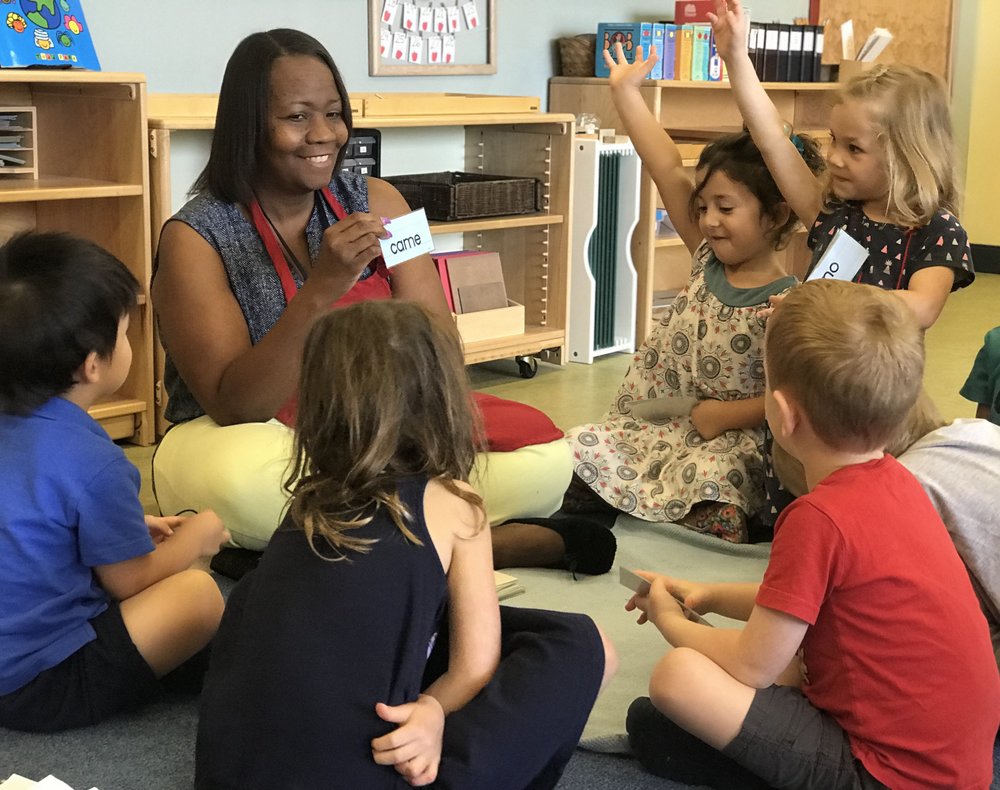
“The sign of great parenting is not the child’s behavior. The sign of truly great parenting is the parent’s behavior.”
I see you.
Trying to be calm, cool, and collected while pushing around a wailing 3 year old who just cannot live without that $70 Star Wars Lego set. I see you fighting back tears at drop off on move-up day as your little one gets used to a new classroom, new faces, and has to be ushered into the classroom anxious and shedding some tears himself. I see you prepping your child for the big transition leaving the playground or parting from her work, mentally preparing for possible mutiny.
What I want to say is this: your toddler’s big emotions are not a reflection of whether your child is “good” or “bad” or the kind of parent you are. Let me say it louder for the people in the back – your toddler’s big emotions are not a result of your parenting skills.
In her book The Montessori Toddler, Simone Davies explains that “What appears to be an explosive tantrum is actually saying ‘I love you so much I feel safe to release everything that I’ve been holding onto all day.’” (9) This reminder may not make you feel better in the moment, but if we approach our child’s behavior from the stance that they lack the necessary skills to regulate their body and emotions and need guidance from us as adults, as Jean Rosenberg suggests in her article “Seeing Tantrums as Distress, Not Defiance,” we are better able to swallow our embarrassment and focus on how we can support them.
Other important reminders:
-
Stay calm. When we meet frustration with exasperation or anger, we beget more of the same instead of modeling self-control and soothing behaviors we would like our child to be able to employ.
-
Hold Boundaries. It’s okay for your child to be upset, but it is not okay for them to hit, kick, or throw things. It’s up to us to remind them of these limits.
-
Acknowledge Their Feelings. When we label feelings for our child, we give them the tools to be able to more calmly express themselves the next time, hopefully avoiding an epic meltdown. Let them feel their feelings, and make sure they know you’re close by when they are ready to talk about it.
-
Continue Communicating Unconditional Love. Let your child know you don’t care what others think when they are having a hard time. It’s important for children to express their feelings, rather than bury them. They (and you) should observe them, learn from them, and move on.
-
Allow Them Time to Process. Toddlers and preschoolers need more time than us to process directions. We can avoid conflict escalation by giving a direction once, and counting to 10 before repeating, if necessary.
-
Tag Out. When we take time to take care of ourselves and recognize our stressors we are better able to show up for our child. Make sure you keep your cup filled so you are able to fill other’s.
Every child preschool age (and often into adulthood!) is learning how to deal with disappointment, frustration, anxiety, and how to feel their feelings. You are not alone. You can work with children 9 hours a day, every day of the week, read every parenting or education book on the shelf, and be a “model” Montessori parent or teacher and still find yourself perplexed about why the child in front of you is an angel one minute and a screaming banshee the next. Parenting is hard. Teaching is hard. Both require communication, sometimes funny, sometimes uncomfortable, and they require us to be a team. Next time you’re having one of those days where the answer to every question you ask is “no,” or you’re wondering if what behaviors you’re experiencing at home are typical – look around. No one is judging you. Lean on each other. Lean on your teachers. Most of us have been there and can support each other in a community of solidarity. It’s important to remember none of us has all the answers, and no one is perfect. We are stronger together. Parenting was never meant to be done alone. It takes a village.









